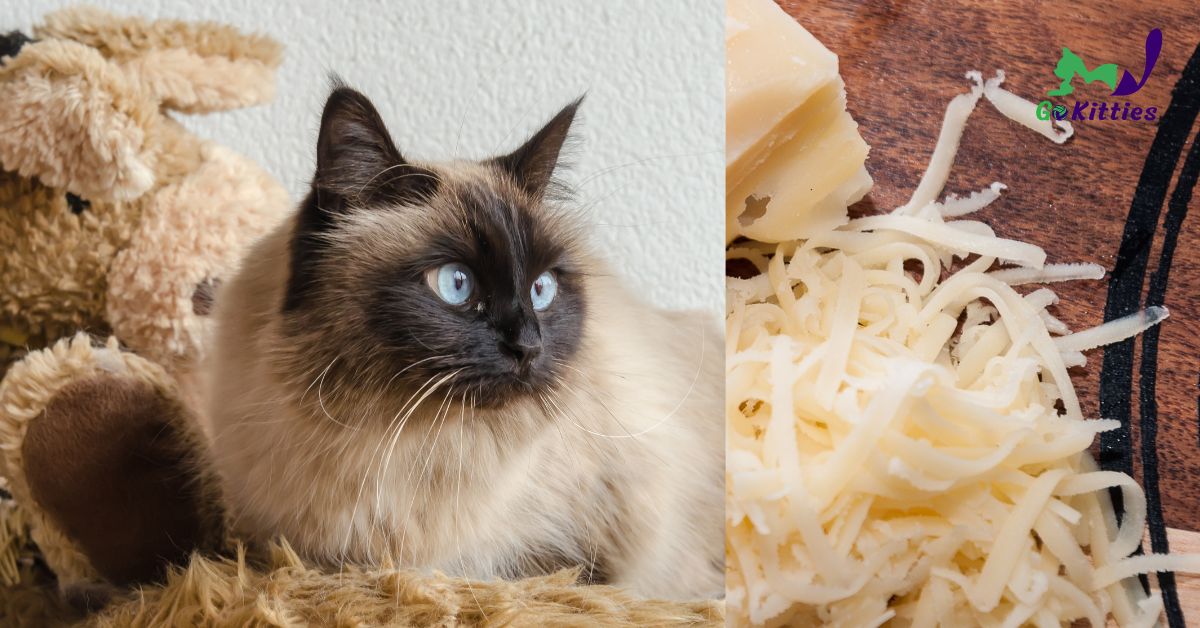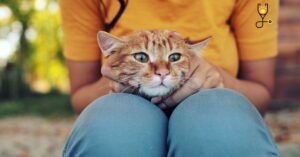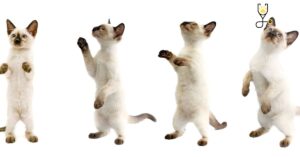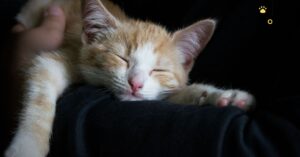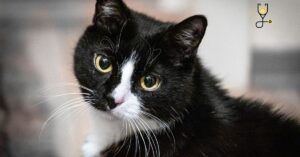Cats are obligate carnivores, which means that they require animal protein to survive. While cheese is made from milk and is high in fat, it can be a nutritious snack for cats in moderation. However, there are some risks associated with feeding cats cheese, so it’s important to weigh the benefits and risks before giving your cat cheese. Here we’ll take a closer look at what research says about cats and cheese.
Can Cats Eat Cheese?
Yes, cats can eat cheese, but it’s important to weigh the benefits and risks before doing so. Cheese is a high-protein, calcium-rich snack that can help to control weight and may provide other health benefits. However, cheese can also be high in salt and may contain harmful bacteria. It’s important to choose low-salt cheeses and avoid giving your cat high-fat cheeses. Pasteurized cheese is the safest option when feeding cheese to your cat.
Benefits Of cheese For Cats

1. Cheese is high in protein
Cats are obligate carnivores, which means that they require animal protein to survive. While cheese is made from milk and is high in fat, it can be a nutritious snack for cats in moderation. Cheese is a good source of protein, which is necessary for cats. Protein provides the building blocks for muscles, skin, hair, and nails.
2. Cheese is a source of calcium
Cheese is also a good source of calcium. Cats need calcium to maintain healthy bones and teeth. A diet that includes cheese can help to ensure that your cat gets the nutrients she needs.
3. Cheese can help to control weight
While cheese is high in fat, it can also help to control weight when fed in moderation. Cheese is filling, so it can help cats feel full after eating a small amount. This can help to prevent cats from overeating and becoming overweight.
Risks Associated With Feeding Cats Cheese

1. Cheese can be high in salt:
Some cheeses are high in salt, which can be harmful to cats. Excess salt can lead to health problems such as high blood pressure and heart disease. It’s important to choose low-salt cheeses when feeding them to your cat.
2. Cheese can cause digestive problems:
Cheese can also cause Digestive problems such as diarrhea and vomiting in cats. This is because cheese is high in fat and lactose, which some cats have difficulty digesting.
3. Cheese may contain harmful bacteria:
Cheese may also contain harmful bacteria such as listeria, monocytogenes and salmonella, which can cause serious illness in cats. It’s important to choose pasteurized cheese when feeding it to your cat to reduce the risk of bacterial infection.
4. Some cheeses may contain toxins:
Some types of cheese, such as blue cheese, may contain toxins that can be harmful to cats. It’s important to avoid giving these cheeses to your cat.
Ways To serve cheese to your cat
There are a few different ways that you can serve cheese to your cat. Here are a few of the most common methods:

1. Cut cheese into small pieces that your cat can easily eat.
2. Feed cheese as a part of a healthy diet plan for your cat.
3. Avoid giving your cat high-fat cheeses, such as blue cheese.
4. Choose pasteurized cheese to reduce the risk of bacterial infection.
What does Research say about Cat And Cheese?
There is little research on the topic of cat and cheese, but what little there is suggests that the two may be compatible. One study published in The Journal of Experimental Biology found that when cats were offered both food items, they tended to eat more cheese than they did cat food. However, it’s important to note that this was a small study with just 12 cats, so further research is needed before any definitive conclusions can be drawn.
Conclusion
While cheese is not a necessary part of a cat’s diet, it can be a nutritious and satisfying snack when fed in moderation. Cheese is high in protein, calcium, and other nutrients that cats need. It can also help to control weight when eaten in small amounts. However, it’s important to choose low-salt cheeses and avoid giving your cat high-fat cheeses. Pasteurized cheese is the safest option when feeding cheese to your cat.
5 Frequently Asked Questions
1. Can Cats Eat Cheese?
Yes, cats can eat cheese as part of a healthy diet. Cheese is a good source of protein, calcium, and other nutrients that cats need. It can also help to control weight when eaten in small amounts. However, it’s important to choose low-salt cheeses and avoid giving your cat high-fat cheeses. Pasteurized cheese is the safest option when feeding cheese to your cat.
2. What risks are associated with feeding cats cheese?
Cheese can be high in salt, which can be harmful to cats. Excess salt can lead to health problems such as high blood pressure and heart disease. It’s important to choose low-salt cheeses when feeding them to your cat. Cheese can also cause digestive problems such as diarrhea and vomiting in cats. This is because cheese is high in fat and lactose, which some cats have difficulty digesting. Cheese may also contain harmful bacteria such as listeria, monocytogenes, and salmonella, which can cause serious illness in cats. It’s important to choose pasteurized cheese when feeding it to your cat to reduce the risk of bacterial infection. Some cheeses may contain toxins that can be harmful to cats. It’s important to avoid giving these cheeses to your cat.
3. What are some ways to serve cheese to a cat?
There are a few different ways that you can serve cheese to your cat:
1) Cut cheese into small pieces that your cat can easily eat;
2) Feed cheese as part of a healthy diet plan for your cat;
3) Avoid giving your cat high-fat cheeses, such as blue cheese;
4) Choose pasteurized cheese to reduce the risk of bacterial infection.
4. What does Research say about Cat And Cheese?
There is little research on the topic of cat and cheese, but what little there is suggests that the two may be compatible. One study published in The Journal of Experimental Biology found that when cats were offered both food items, they tended to eat more cheese than they did cat food. However, it’s important to note that this was a small study with just 12 cats, so further research is needed before any definitive conclusions can be drawn.

